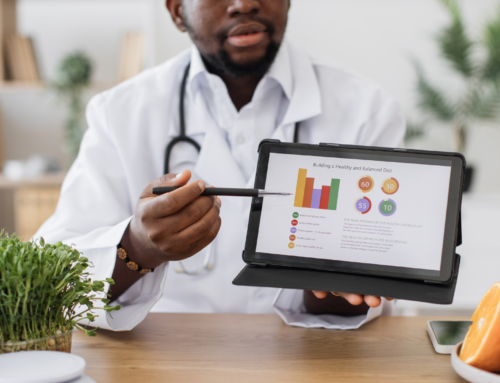Table of Contents
- Secrets of Omni-channel Marketing in Healthcare
- 1- Patients Want Choice and Convenience
- 2- Patients Appreciate a Seamless Experience
- 3- Patients Value Personalization
- 1. Personalized Reminders
- 2. Mass Communications
- 3. Online Booking
- 4. Enabling Patients To Self Serve
- 5. Deliver Targeted Messages
- 6. Maintain Consistent Messaging
- 7. Enable Patient Feedback
- Conclusion
Secrets of Omni-channel Marketing in Healthcare
It’s no secret that omnichannel marketing is becoming exponentially vital in the healthcare industry. After the unfortunate breakdown of the coronavirus pandemic, patients are shifting their healthcare habits to be more online-friendly; they expect a seamless experience across all communication channels. Healthcare advertisers need to adopt an omnichannel approach.
This blog will define omnichannel marketing and discuss why it’s essential in healthcare. Then, we’ll outline seven competitive and effective strategies for implementing an omnichannel strategy in your organization.
Let’s get started!
What is Omnichannel Marketing?
Omnichannel marketing is a customer experience strategy that allows consumers to move seamlessly between digital and offline channels. Instead of every channel operating independently, they’re integrated into one unified system.
Patients today demand more than just an omnichannel experience; they want a holistic healthcare journey across multiple touchpoints, incorporating inpatient care, retail pharmacies, outpatient facilities, and virtual visits.
For instance, say a patient suffers from a condition called chronic cough. By conducting a virtual assessment before an in-clinic visit, you must be able to treat their symptoms without the need to see them in person. You may also determine if any testing is needed before the in-clinic visit. This method allows your office to allow the optimum time for every appointment and prioritize emergencies.
The patient then books an in-person clinic appointment with a healthcare professional directly after the virtual visit.
If they require additional testing or imaging following this initial in-person visit, they can visit one of your healthcare institute’s outpatient facilities for follow-up care if needed.
Post that, they may stop by your retail pharmacy to pick up the prescribed medication, and finally, they may follow up with a virtual visit to make sure that their treatment plan is on track and the patient’s health is progressing.
Why is Omni-channel Marketing Important in Healthcare?
Now that we’ve clarified omnichannel marketing, let’s discuss why it’s so vital in healthcare.
Here are a few key reasons:
1- Patients Want Choice and Convenience
The modern-age patient wants to be able to select the channel they interact with your healthcare institution. They also want straightforward access to care across all channels. Healthcare offerers need to offer a variety of touchpoints.
2- Patients Appreciate a Seamless Experience
Patients today expect a hassle-free experience despite of which channel they use. If they have a terrible experience with one touchpoint, it can hamper their perception of your healthcare institution. A well-coordinated omnichannel strategy ensures patients have seamless experiences across all contact channels.
3- Patients Value Personalization
The modern-age and quality-demanding patient also expects a personalized healthcare experience. A well-coordinated omnichannel strategy can facilitate you sending targeted communications and offers, aiding your organization in building and maintaining relationships with patients and differentiating itself from competitors.
Now that we’ve seen why omnichannel marketing is essential in healthcare, let’s discuss some competitive strategies for implementing it.
7 Best Strategies to Implement Omnichannel Marketing
Here are the competitive strategies that you should leverage to implement omnichannel marketing.
1. Personalized Reminders
Setting up that personal touch makes your patients feel welcome and looked after. You can make it simple for your patients to remember their appointments by sending them personalized reminders.
Reminders through text messages have repeatedly been proven to be the most fantastic reminder form.
2. Mass Communications
There’s nothing more terrible than getting too many emails, text messages, or phone calls reminding you about one thing or another. However, mass communication can be exponentially helpful when done correctly.
For instance, if you send a monthly email newsletter incorporating information about new products, services and events, you’re offering valuable content to your patients while strategically reminding them about what’s happening with your company.
3. Online Booking
You can make it effortless for your patients to book appointments and check in by adding an online booking feature to your landing page or website. This will enable them to avoid the hassle of having to call you, wait on hold and talk with a healthcare representative. It also enhances their experience with your institution since they don’t have to interrupt their daily functions or sit on hold.
4. Enabling Patients To Self Serve
In today’s modern-age busy culture, several patients would prefer not to have any contact with your organization unless necessary. It is best to allow them to self-serve as much as possible from your mobile application or site.
This may include checking their appointment time or the status of their insurance claim. Online portals are the most straightforward way to enable patients to self-serve.
5. Deliver Targeted Messages
You can leverage omnichannel marketing to deliver personalized communications to your patients based on their demands and preferences.
For instance, you could email a patient struggling with weight loss about a discount coupon for your gym membership if they live near one of your locations or have healthy eating habits.
You may also send targeted messages to patients overdue for a regular annual checkup or remind them when they’re due for a screening test, such as colonoscopies and mammograms.
6. Maintain Consistent Messaging
Once you’ve designed your omnichannel marketing strategy, you should maintain consistent messaging across all channels. This means leveraging the same voice, tone and brand identity throughout your website, emails, and mobile app. Using varied voices on each platform or adopting a fresh style when designing an email newsletter template can be tempting. However, this will confuse patients or healthcare seekers who are already bombarded with information and will likely forget which healthcare-providing institution they’re dealing with.
7. Enable Patient Feedback
One of the most notable benefits of omnichannel marketing is that it offers a better understanding of how your patients feel about your healthcare institution. You can collect patient feedback through surveys, social media and even review sites.
Make sure you’re considering what your patients say and use that information to improve their experience with your organization further.
Conclusion
By leveraging these seven effective strategies, you can build an omnichannel marketing strategy to help you reach your corporate goals and enhance the patient experience.







